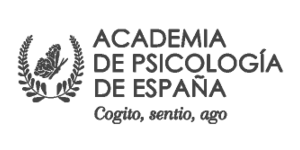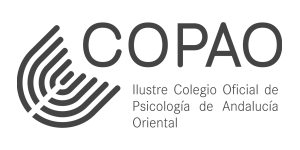Speaker

OLGA PUIG
UNIVERSITY OF BARCELONA. SPAIN
Olga Puig, PhD, is a child and adolescent clinical psychologist with extensive experience in child and adolescent mental health care at the Child and Adolescent Mental Health Center of the Department of Psychiatry and Child and Adolescent Psychology at the Hospital Clínic de Barcelona.
In 2018, she joined the care team of the Program for the Prevention and Treatment of Psychological Sequelae in Female Victims of Recent Sexual Assault at the Hospital Clínic de Barcelona, serving as a reference for the detection and treatment of psychological sequelae in adolescent victims of sexual assault. Since 2021, she has been the care coordinator of this program. She is a member of the Commission on Gender-Based Violence and Health at the same hospital, as well as of other working groups collaborating with public health agencies, such as the Women and Mental Health group of the advisory committee of the Mental Health Master Plan of the Department of Health; Expert group for the review of the Protocol for addressing child and adolescent abuse within the health field, Public Health Agency, Department of Health of the Generalitat de Catalunya. In terms of research, she holds a PhD from the Faculty of Medicine of the University of Barcelona. She is a researcher at the IDIBAPS research center and a collaborator in various established research groups on child and adolescent mental health (CIBERSAM, 2021SGR01319).
She is the author and collaborator of numerous research papers on mental disorders in childhood and adolescence. In recent years, she has co-led a line of research on Post-Traumatic Stress Disorder and its impact on adolescent victims of recent sexual assault, funded by various grants (Alicia Koplowitz Foundation, Pons Bertrán Research Grants, Hospital Clínic).
Sexual Trauma in Children and Adolescents: Prevalence and Impact
in Different Populations of Child and Adolescent Victims of Sexual Violence
Sexual assault (SA) is a highly prevalent problem that particularly affects young women (Basile et al., 2022), with adolescents at greatest risk of being victims of sexual violence (Trotman et al., 2016). Furthermore, the population with mental disorders is also at particularly high risk of experiencing SA, with a likelihood of being victims of sexual violence up to six times higher than that of the general population (Kalifeh et al., 2016).
Adolescence is a particularly important period of development, during which important maturation and neurodevelopmental processes occur.
Being a victim of SA at this critical stage of development can significantly interfere with these processes (Cisler et al., 2021). Mental health consequences are one of the main consequences of sexual violence. Most mental disorders are more common in victims of AS, with depression and post-traumatic stress disorder (PTSD) being particularly prevalent (Dworkin et al., 2020). A high prevalence of symptoms predisposing to depression and PTSD has been reported in adolescent victims of AS, with higher rates than in the adult population, and which also appear to have a more persistent course (Clarke et al., 2023).
The objective of this panel is to review the prevalence and examine the impact of sexual victimization on mental health and development in different samples of children and adolescents, with and without mental health disorders:
– Sexual Violence in Adolescent Patients with Severe Eating Disorders, Dr. S. Andrés: The prevalence of trauma and sexual trauma will be reviewed in adolescents with severe eating disorders (ED) treated at a day hospital specializing in eating disorders. The clinical characteristics of patients with sexual trauma will be presented compared to the group of patients with other types of trauma. – Prevalence and correlates of sexual abuse in a cohort of children and adolescents with and without psychopathology (EPI_YOUNG_STREES), Dr. S. Romero: The results of the prevalence and sociodemographic and clinical correlates of sexual abuse will be presented, as well as a comparison of these characteristics with other forms of child abuse in a multicenter cohort of children and adolescents recruited from both mental health services (with psychopathology) and the community (healthy controls).
– Clinical and psychosocial functioning profile in adolescents with PTSD secondary to recent sexual assault, Dr. O. Puig: The baseline and one-year follow-up results of a sample of adolescents with PTSD secondary to recent sexual assault will be presented, in relation to the clinical profile of psychopathological symptoms and their impact on psychosocial functioning in this sample. – Neuroimaging correlations in adolescents with PTSD secondary to recent sexual assault, Dr. L. Fortea: The results of investigating brain activation patterns and functional connectivity associated with PTSD in this same sample of adolescents with PTSD secondary to recent SA will be presented, both at rest and during an emotion recognition task, as well as their relationship with the severity of clinical symptoms.













